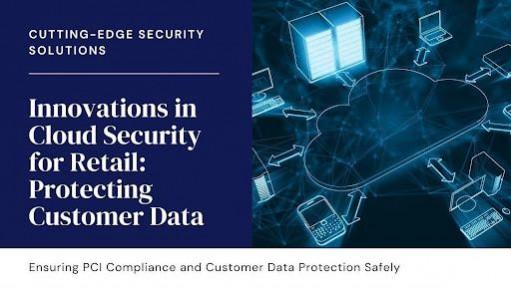
In recent years, cloud computing has become a critical component of the retail sector, driving innovation and enhancing customer experiences. However, the shift to the cloud also introduces significant security challenges, particularly in safeguarding customer data and adhering to Payment Card Industry Data Security Standard (PCI DSS) compliance. This article delves into the security innovations that retailers are leveraging to mitigate these risks and ensure robust protection of sensitive information.
The Role of Cloud Computing in Retail
Cloud computing has revolutionized retail operations by enabling scalability, flexibility, and real-time data analysis. The retail cloud market is projected to grow at a compound annual growth rate of 16.3% from 2021 to 2026, reaching $51.39 billion. The surge in online shopping fuels this growth, the necessity for scalable IT infrastructure, and the demand for instant data insights. A survey revealed that 72% of retail executives consider cloud computing vital for business growth.
The COVID-19 pandemic has accelerated the shift to online shopping, with a 44% increase in online sales in 2020 compared to the previous year. This surge has compelled retailers to adopt cloud technologies that can handle increased traffic and transactions while offering advanced analytics and AI capabilities to personalize the shopping experience and drive sales.
Security Challenges in Retail Cloud Computing
Cloud computing offers benefits but brings security risks. Retailers must protect customer data and comply with PCI DSS. With online shopping's rise, securing payment methods is crucial. In 2019, weak web application firewall protection led to a breach exposing over 100 million credit card numbers.
Retailers store vast amounts of sensitive customer information, making them prime targets for cyberattacks. The average data breach cost in retail is around $3.29 million, and it typically takes 243 days to detect and contain a breach. Small and medium-sized retailers are particularly vulnerable, with 60% shutting down within six months of a cyberattack.
E-skimming, where hackers inject malicious code into websites to steal payment information, is a growing threat. Additionally, insider threats, whether malicious or accidental, pose significant risks. A study found that 55% of retailers experienced an insider-related security incident in the past year.
Cybercriminals continuously develop new attack methods, creating an evolving threat landscape. To stay ahead of these threats, retailers must adopt proactive security strategies, which have been shown to be 2.2 times more effective than reactive approaches.
Innovative Cloud Security Solutions
To address these challenges, retailers are adopting cloud security measures like encrypting data in transit and at rest to prevent unauthorized access. Tokenization replaces sensitive information with unique identifiers. Studies indicate that extensive use of encryption and tokenization can lower data breach costs by 29%.
Intrusion Detection and Prevention Systems (IDPS) monitor network activities for suspicious behavior and alert security teams to potential threats. When combined with Security Information and Event Management (SIEM) systems, which provide real-time analysis of security alerts, IDPS can significantly enhance cloud security.
Adhering to PCI DSS guidelines is crucial for protecting credit card information and preventing fraud. Retailers must ensure their cloud infrastructure meets these standards, implement strong access controls, and conduct regular security assessments.
Multi-factor authentication (MFA) adds an extra layer of security by requiring additional verification, such as a fingerprint or one-time code, beyond just a password. This significantly reduces the risk of unauthorized access. Microsoft reports that MFA can prevent 99.9% of account compromise attempts. Several retailers have successfully implemented these security measures, demonstrating their effectiveness.
In conclusion, integrating cloud computing in retail is essential for scalability, flexibility, and real-time data analysis. However, it introduces new security challenges that must be addressed to protect customer data and comply with PCI DSS standards. By implementing robust security measures such as encryption, tokenization, IDPS, and MFA, retailers can enhance their cloud security posture, protect sensitive information, and maintain customer trust. Amarnath Ragula's work focuses on innovative solutions to safeguard customer data in the evolving retail landscape.









